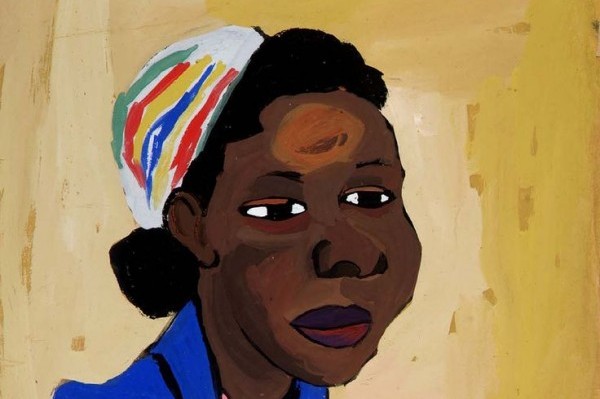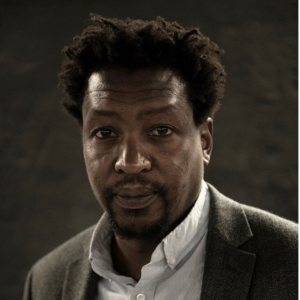 The old man sits in the bathtub and hums a calming tune, his thoughts lost among the white foams.
The old man sits in the bathtub and hums a calming tune, his thoughts lost among the white foams.
The heady scent of lavender shampoo is suspended in the air, but it’s been tempered by the severe odors of the old man’s medicated body oils.
The majestic blue of the waking sky, punctuated here and there by wispy clouds, comes through the little bathroom window. The sun is still rising and the world is still emerging from the waters of sleep.
The old man hums gently, thoughts lost among the foams.
She lathers a sponge and begins to wash the old man’s back. She knows his body well. The wrinkled, papery skin clinging his bones is familiar terrain and has an air of claimed territory. Now she moves to his face and begins to wash, carefully soaping around his eye sockets then ascending his plateau of a forehead before descending into the valley between his eyes. She can feel his frail body vibrating deeply as he croons and this comforts her, soothes her. She too begins to hum, an old tune she heard a long time ago. The old man jerks suddenly.
“Where did you hear that song?” He asks, lips quivering.
“What song?” She replies.
“The one you are humming.”
“Oh, that old thing? I don’t remember.”
He falls silent and remains so for the rest of the bath, but she senses a shift in the air. Though he sits still, his eyes have that sweet, startled look of child who has just discovered ice-cream. She doesn’t hum the tune again. It seems to disturb him.
Dust motes dance lazily in the morning sunlight pouring through the open windows of his small bedroom—their movements made more frantic by the spinning ceiling fan.
She guides his arm through the sleeves of a red shirt and proceeds to button him up. She stands so close to the old man that she can smell the lavender on his neck, so close that she can see the enterprising white strands of hair growing in his nose and ears. The shirt buttoned, she stands back and looks at him in much the same way a mother would look at her child who is all dressed up and ready for a first day at school. His skin looks even more wrinkled as though whatever was weighing on his mind was also contracting his person, collapsing his torso and limbs towards the soul that had lived its fair share of life.
“Mr. Abadu, what’s wrong?” She asks, worried.
He looks up at her, a new fire burning in his eyes. Into this flame she looks and feels herself being pulled into the monochromatic haze of the past.
“I loved once,” the old man begins.
The year was 1966 when I first met my love. I was working in the customer care unit of the Nigerian Airways and my love was having trouble purchasing a plane ticket for England. So I came over to help, and thank God I did. When our eyes met we forgot about the plane ticket entirely. We just knew.
“Nigeria had an international airport in 1966?” She asks as she leads him down the stairs of Sunrise Home for the Elderly to breakfast.
“Yes. Don’t interrupt me again Josephine. Now what was I saying?”
Ah, yes. We just knew.
We forgot about the plane ticket because we both received something far better. Man, we were crazy. And in love. So very in love.
The old man pauses and Josephine, fearful that a stray word may burst the bubble of memories he is so blissfully trapped in, remains quiet.
“Whenever we walked hand in hand into a restaurant or some other public space people would stare venomously at us. I have lost count of the number of restaurants from which we were banned, the amount of abuse we suffered in the hands of the police, the numerous death threats we received. But we didn’t care. See, true love is consummate. Where it exists, nothing else can be as true and as real and as pure. Therefore, we barely noticed what people were saying because our only realities were found in each other. The world and all its people might have as well been a story from a myth we were forced to wake up to every morning.
“What’s her name…this lover of yours?” Josephine asks as she carries a bowl of oatmeal to the old man. The other residents of Sunrise Home are now just stirring in their beds. Mr. Abadu is an early riser.
The old man takes a spoon of the oatmeal before he answers.
“His name was Zamani. Farouk Zamani. He was an architect, but he used to write a lot of stories and poems and whatnot. Sometimes he would read his poetry to me, albeit shyly. Despite his short temper and loud voice Zamani was still very unsure of his art.
He pauses to swallow another spoon.
“He was going to publish a book, you know. He used to joke that his book would spark a social revolution. I never took him seriously when he spoke like that.”
When the civil war broke out in 1967, Zamani changed. He was sensitive in that peculiar way all poets are and he always spoke passionately about the genocide that was being carried out against the Igbo people. I wasn’t really bothered. We both lived in Lagos and the war never reached there. I expected him to just write a few poems and purge his soul. Boy was I wrong. The last time I saw him, we were sprawled on the floor of my apartment, listening to some records on the gramophone. It was really hot that day, so we removed our shirts. That is the only image I have of him now: shirtless, lying on his back with his arms folded across his belly, his mind a million miles away. The song you were humming this morning was the song that was playing at that moment in my apartment. I think I still remember some of the words.
I’ll marry the undertaker’s daughter
O yes, we’ll be together
‘Til we go and meet The Maker.
That song has become the soundtrack of that memory. I wish I asked him what he was thinking, you know. I wish I asked.
“What happened?” she asks, slightly irritated at the old man’s having to pause every now and then.
“The next day I came to his home and found it locked and boarded up. Zamani was gone. It was almost 15 months later that I received word from another friend that Zamani had travelled to the East and signed up for the Biafra secessionist army. That was the last I ever heard about him. I don’t know if he is alive today or not, but ever since he left I have been trying to make this world a myth, a fairytale to breeze through—as it once was to us. But the void he created makes this world too real. I have failed, you know.
Mr.Abadu lifts his eyes from his bowl and looks his caretakerin the eye.
Josephine had concluded within the first week of caring for the old man that there was always a sad knowing in his eyes, that there was a multitude of tragedies compressed into them. For 23 year old Josephine, the old man’s eyes spoke of a half-remembered feeling, an uncompleted story. But as she stares into those same eyes now, she realizes that the real tragedy lies in his soul—the tragedy of an uncompleted love.
Josephine and Mr.Abadu remain silent. She opens her mouth to say something. She wants her words to soothe the old man, to reach out and stroke his white hair and tell him everything is going to be okay. She opens her mouth, but the proper words elude her.
“C’mon Mr.Abadu”, Josephine finally says with forced cheerfulness, “Let’s go for a stroll in the garden.”
The old man glances briefly at his half-finished bowl of oatmeal and gently sets his spoon down.
“Alright”, he says.
Post image via manufactoriel.
About the Author:
 Nnamdi Ibeanusi was born in 1998 in Nigeria and has lived there ever since. Currently he hopes to start university in September and Major in Computer Science. Nnamdi really likes writing, reading and watching Christopher Nolan movies
Nnamdi Ibeanusi was born in 1998 in Nigeria and has lived there ever since. Currently he hopes to start university in September and Major in Computer Science. Nnamdi really likes writing, reading and watching Christopher Nolan movies









OKi Taiwo February 11, 2018 13:24
I really love this story (am sure I will keep reading it) .......no wonder u could be among the finalists in the 4th edition of Cesar Egido Serrano foundation's international flash fiction(that was where I discovered your name) Which I entered for the fifth edition...keep writing, looking forward to your first novel